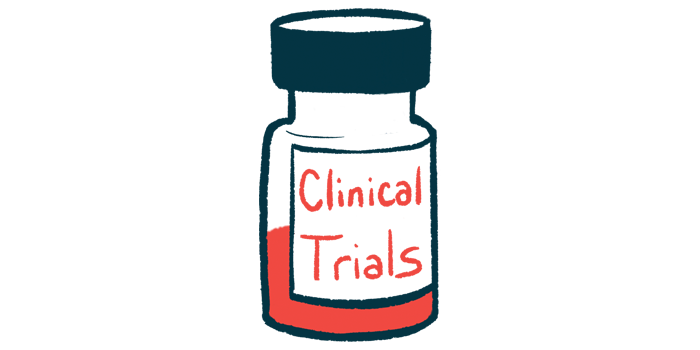Parkinson’s vaccine seen to target toxic alpha-synuclein in Phase 1 trial
Patients treated at specific dose showed 20% decline in protein clumps

Treatment with UB-312, a vaccine designed to trigger an immune response against toxic clumps of the alpha-synuclein protein, reduced these damaging aggregations in people with Parkinson’s disease in a Phase 1 trial.
The findings, announced by UB-312’s developer Vaxxinity and presented at the at the AD/PD 2024 International Conference on Alzheimer’s and Parkinson’s Disease recently held in Portugal suggest that the experimental vaccine is working as designed.
“What we see from our UB-312 program is the potential to change the whole conversation around Parkinson’s treatment and prevention,” Lou Reese, co-founder and executive chairman of Vaxxinity, said in a company press release.
Trial data support the Parkinson’s vaccine, UB-312, hitting ‘the right target’
A post hoc analysis — that is, an analysis done after the study had finished and all the data were collected and unblinded — indicated that patients who had treatment-induced antibodies against the toxic alpha-synuclein protein detectable in their cerebrospinal fluid tended to report a better ability to engage in day-to-day activities. (The cerebrospinal fluid is the fluid that surrounds the brain and spinal cord.)
These improvements generally were more pronounced in patients who had a greater reduction in toxic alpha-synuclein levels, Vaxxinity stated.
“Our findings suggest UB-312 could transform Parkinson’s care, offering hope for improved outcomes with a disease-modifying treatment,” Reese said. “The future isn’t decades away: today’s Parkinson’s patients may have hope for the near, not distant future.”
Parkinson’s is characterized by abnormal clumps of the alpha-synuclein protein, which are toxic to brain cells and are thought to play a central role in driving the disease. UB-312 aims to break up these alpha-synuclein aggregates by triggering the immune system to make antibodies against the toxic protein clumps.
A Phase 1 clinical trial (NCT04075318), completed in March 2023, tested the experimental vaccine — at different dosing regimens — against a placebo first in healthy volunteers, then in 20 people with Parkinson’s. Previously reported trial data showed UB-312 was generally well tolerated and triggered the production of antibodies against alpha-synuclein as designed.
These new findings come from a two-year project funded by the Michael J. Fox Foundation for Parkinson’s Research, which aims to more deeply characterize trial results by analyzing samples of participants’ cerebrospinal fluid.
Data showed a 20% reduction in clumped alpha-synuclein levels for patients given UB-312 at a 300/100/100 microgram dosing regimen, compared with a 3% increase in patients given a placebo. Findings also indicated that antibodies produced in response to UB-312 specifically target the atypical clumped version of alpha-synuclein, not the normal form of the protein.
Jean-Cosme Dodart, PhD, senior vice president of research at Vaxxinity, said the result “provides us confidence that we are going after the right target and in a way that is statistically and clinically relevant to patients.”
The company also announced plans to soon publish findings from the trial phase involving patients in a peer-reviewed scientific journal.







